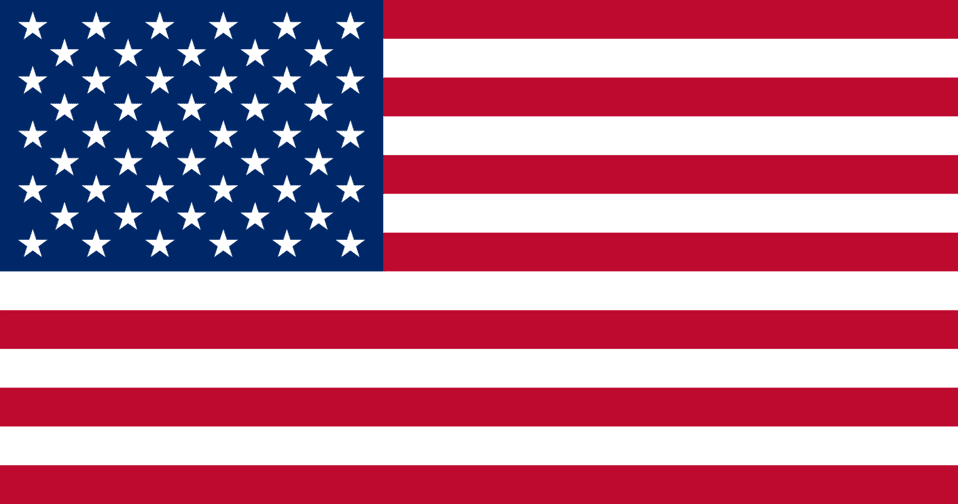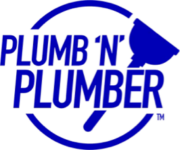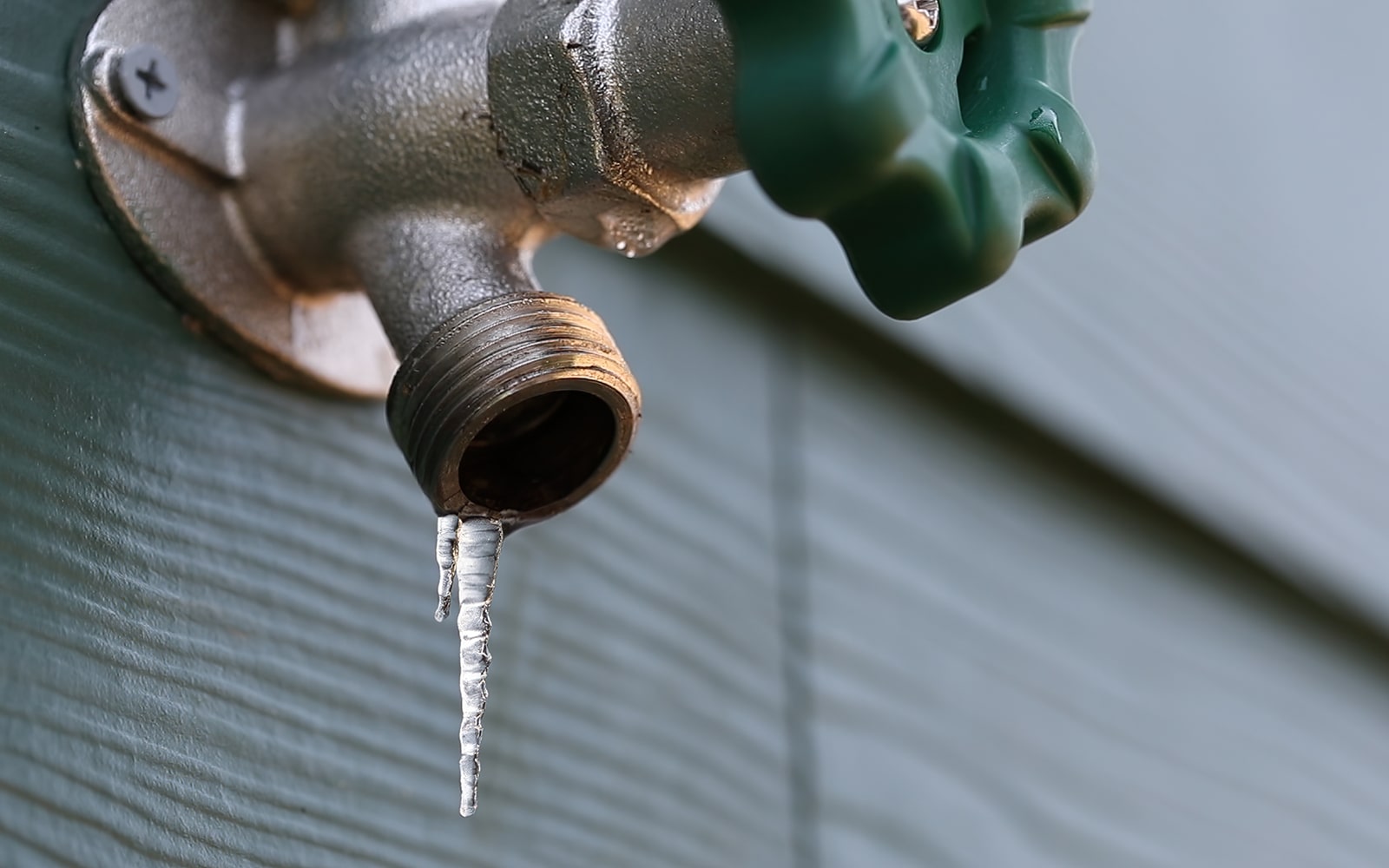It’s that time of year again… ❄️
Halloween decorations, Turkey Day football, the fragrances of cinnamon and pine from the garland… and waking up in the middle of the night wondering if you should have left the faucets dripping.
As the winter months approach, it’s essential to focus on the health of your home’s plumbing system to ensure a seamless transition into colder weather. With fluctuating temperatures and unexpected cold snaps characteristic of North Georgia, specifically Cherokee County, Preparing Your Pipes for Winter is crucial not only for maintaining comfort but also for avoiding costly damages.
Then you can enjoy your post-turkey slumber without a care in the world. 🦃
When to Start Preparing
Timing is everything when it comes to winterizing your pipes. Begin preparations in late fall, ideally by mid-November. This timing allows you to avoid the last-minute rush and ensures that your plumbing system is well-insulated before the first freeze hits. Keeping an eye on local weather forecasts will help you anticipate the initial drop below 32°F, which signals that it’s time to ensure your pipes are ready.
How to Prepare Effectively
Achieving effective winter weather preparation for your home’s water pipes involves a few key steps:
- Inspection: Conduct a thorough inspection of your plumbing system. Look for vulnerable areas that might need extra protection against freezing.
- Insulation: Focus on insulating exposed pipes located in unheated areas such as basements, crawl spaces, and garages.
- Seal Drafts: Identify and seal any drafts around windows and doors to maintain a stable indoor temperature.
- Drip Faucets: During extreme cold spells, allow faucets to drip slightly as this can relieve pressure in the pipes and help prevent them from freezing.
- Shut-off Valves: Locate shut-off valves and ensure they are easily accessible.
For those who may not feel comfortable tackling these tasks on their own, professional services like those offered by Plumb N Plumber can provide expert assistance with these preparations.
Why It’s Important
Understanding why Preparing Your Pipes for Winter is vital can save you from potential headaches and wallet woes later on:
- Avoid Costly Repairs: Frozen or burst pipes can lead to expensive repairs and extensive water damage.
- Prevent Disruptions: Ensuring your plumbing system is well-prepared reduces the risk of interruptions in water supply during cold weather.
- Maintain Home Comfort: Proper insulation and preparation contribute significantly to maintaining a warm and cozy home environment throughout the winter months.
Neglecting these steps can leave you facing significant disruptions during already challenging conditions—preventative measures taken now will safeguard both your home and peace of mind through the colder seasons.
Understanding the Unique Winter Climate of Cherokee County, GA
Cherokee County, located in the northwestern part of Georgia, experiences a winter climate that is distinct from many other regions in the state. The county’s geographical position contributes to its unique weather patterns during the colder months, making it crucial for homeowners to understand and prepare accordingly.
Typical Winter Weather Conditions
1. Average Temperatures
During winter, Cherokee County typically experiences temperatures ranging from the mid-30s to low-50s Fahrenheit. While these temperatures may not seem extreme, the occasional dip below freezing can pose significant risks to plumbing systems.
2. Snowfall and Precipitation
Unlike northern states, Cherokee County does not see heavy snowfall. However, light snowfalls and ice storms are not uncommon. These weather events can cause sudden temperature drops, increasing the likelihood of frozen pipes.
The climate in Cherokee County is characterized by fluctuating temperatures that can lead to unexpected cold spells. This unpredictability means that residents must remain vigilant throughout the winter months to protect their homes and plumbing systems.
Impact on Plumbing Systems
Frozen Pipes: One of the most pressing concerns during Georgia winters is the risk of frozen pipes. When temperatures drop below 32°F, any water inside exposed or poorly insulated pipes can freeze. This expansion often results in burst pipes, leading to costly repairs and potential water damage within your home.
Vulnerability of Exposed Pipes: In Cherokee County, any plumbing located in unheated areas such as basements, attics, or outside walls is particularly susceptible to freezing conditions. Without proper insulation or protective measures, these pipes can quickly become a liability during cold snaps.
Why It’s Important to Prepare
Understanding Cherokee County’s specific winter climate helps emphasize why preparation is essential:
- Reducing Risk: By acknowledging average temperature ranges and potential weather events like ice storms or brief snowfalls, homeowners can take proactive steps to mitigate risks associated with freezing conditions.
- Ensuring Longevity: Properly preparing your plumbing system for winter not only prevents immediate issues but also extends the life of your pipes and fixtures by minimizing wear and tear caused by freeze-thaw cycles.
Knowledge about local weather patterns empowers residents with the foresight needed for effective winterization strategies. Anticipating these conditions aids in avoiding disruptions that frozen pipes might cause during everyday activities.
Cherokee County’s winters may not be as harsh as those in northern climates; however, they still require attention and preparation due to occasional freezing temperatures which significantly impact residential plumbing systems.
When Should You Start Preparing Your Water Pipes for Winter?
Preparing Your Pipes for Winter is a crucial step in safeguarding your home from the harsh realities of cold weather. Cherokee County residents should aim to start this process in late fall, ideally by mid-November. This timing ensures you avoid the rush and provide enough attention to detail for proper insulation.
Timing for Pipe Preparation
Living in Cherokee County means being familiar with the local climate patterns. The first signs that you need to start Preparing Your Pipes for Winter are noticeable when temperatures begin to flirt with the freezing point. Monitoring local weather forecasts becomes vital as they can provide you with first freeze indicators—such as temperatures dropping below 32°F.
- Start Early: By beginning preparations in mid-November, you position yourself ahead of any sudden cold snaps.
- Avoid Rush: Early preparation means avoiding the last-minute rush that can lead to oversight or incomplete insulation efforts.
Late Fall Maintenance
Conducting a thorough inspection of your plumbing system during late fall maintenance is essential. This proactive approach allows you to identify vulnerable areas of your plumbing that may require additional protection against freezing conditions.
- Inspect Thoroughly: Look for exposed pipes, especially those in unheated areas like basements or crawl spaces.
- Identify Vulnerabilities: Pay close attention to parts of your plumbing system that have shown previous issues or are prone to exposure.
First Freeze Indicators
Understanding when temperatures are expected to drop below 32°F helps time your pipe preparation effectively. This awareness provides a critical window for action:
- Weather Forecasts: Regularly check local forecasts and set alerts for significant temperature changes.
- Temperature Tracking: Knowing when the first freeze is likely aids in scheduling inspections and necessary repairs.
Importance of Early Preparations
Starting early can prevent costly damage from frozen pipes, which can burst and lead to water damage inside your home. Here’s why early preparation is not just advisable but essential:
- Cost Avoidance: Preventative measures cost significantly less than emergency repairs.
- Home Safety: Ensuring pipes are insulated reduces the risk of water supply interruptions during cold spells.
Recommended Timeline
Taking into account Cherokee County’s climate patterns, here’s a recommended timeline for inspections and maintenance work:
- Mid-November:
- Begin initial inspections.
- Identify and insulate exposed piping.
- Late November/Early December:
- Continue monitoring weather forecasts.
- Perform follow-up checks on any previously identified vulnerabilities.
- Throughout Winter:
- Regularly inspect pipes after extreme cold spells.
- Stay vigilant about indoor heating settings and drafts that could affect pipe temperature.
By following these steps, homeowners can safeguard their plumbing systems efficiently against winter’s challenges. Aligning these actions with seasonal cues ensures that your home remains safe and functional throughout the cold months. For more insights on preparing homes for winter, including additional tips, homeowners can refer to expert advice on seasonal maintenance practices.
A Step-by-Step Guide to Winterizing Your Water Pipes in Cherokee County
When it comes to safeguarding your home during the chilly months, Preparing Your Pipes for Winter is a critical task. Residents of Cherokee County, GA, understand the importance of proactive measures to prevent frozen pipes, which can lead to costly repairs and disruptions. Here’s how you can effectively prepare your home’s plumbing system for the cold winter weather in North Georgia.
Step 1: Inspect and Insulate Exposed Pipes
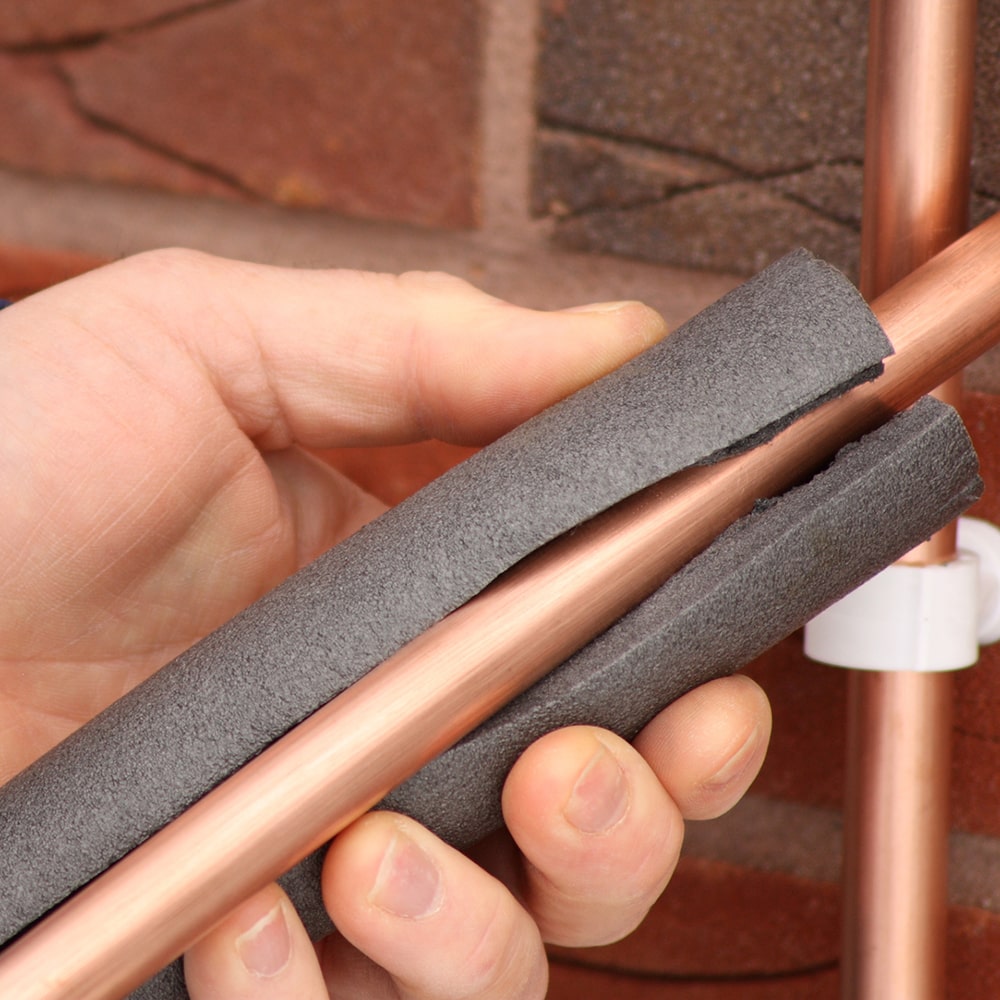
Exposed pipes in unheated areas like basements, crawl spaces, and attics are particularly susceptible to freezing. During the cold winter months, these vulnerable sections of your plumbing system can easily freeze if not properly insulated or protected. This can lead to significant damage, including pipe bursts and water leaks, causing costly repairs and potential water damage to your home. It’s crucial for homeowners to identify these at-risk pipes and take preventive measures to ensure their safety throughout the season. By addressing this issue early, you can maintain the integrity of your home’s plumbing and avoid unnecessary disruptions during the colder months.
- Locate Exposed Pipes: Begin by identifying all exposed pipes in your home. These are typically found in unheated spaces or along exterior walls.
- Insulation Materials: Use foam pipe insulation sleeves or heat tape as an effective barrier against freezing temperatures. Both options are readily available at local hardware stores.
- Wrap Pipes Securely: Ensure that each pipe is wrapped securely from end to end without any gaps. Overlapping the insulation slightly will provide more comprehensive protection.
Step 2: Seal Drafts Around Windows and Doors
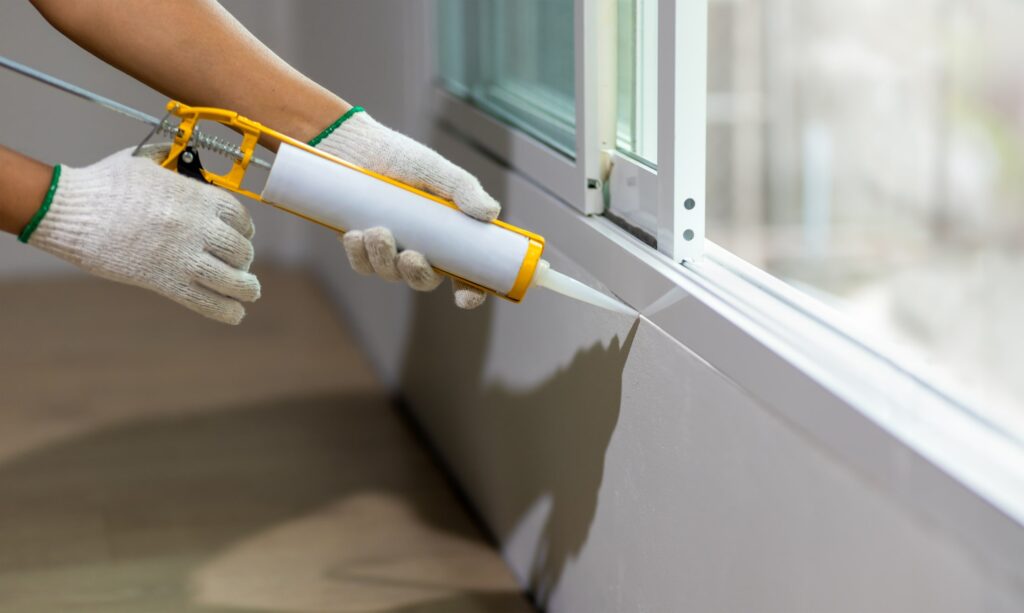
Maintaining a stable indoor temperature is crucial in safeguarding your plumbing system during the winter months. By ensuring that your home remains warm, you significantly reduce the risk of frozen pipes, which can lead to bursts and costly water damage. Consistent heating not only protects your pipes but also contributes to an overall comfortable living environment, shielding both your home and its inhabitants from the harsh effects of cold weather. Taking proactive measures to maintain a steady temperature can prevent emergencies and provide peace of mind throughout the chilly season.
- Identify Drafty Areas: Pay attention to windows, doors, and any other openings where cold air might infiltrate your home.
- Use Weatherstripping or Caulk: Apply weatherstripping around doors and windows or use caulking to seal gaps effectively.
- Install Door Sweeps: Adding door sweeps can also help block drafts under exterior doors.
Step 3: Allow Faucets to Drip
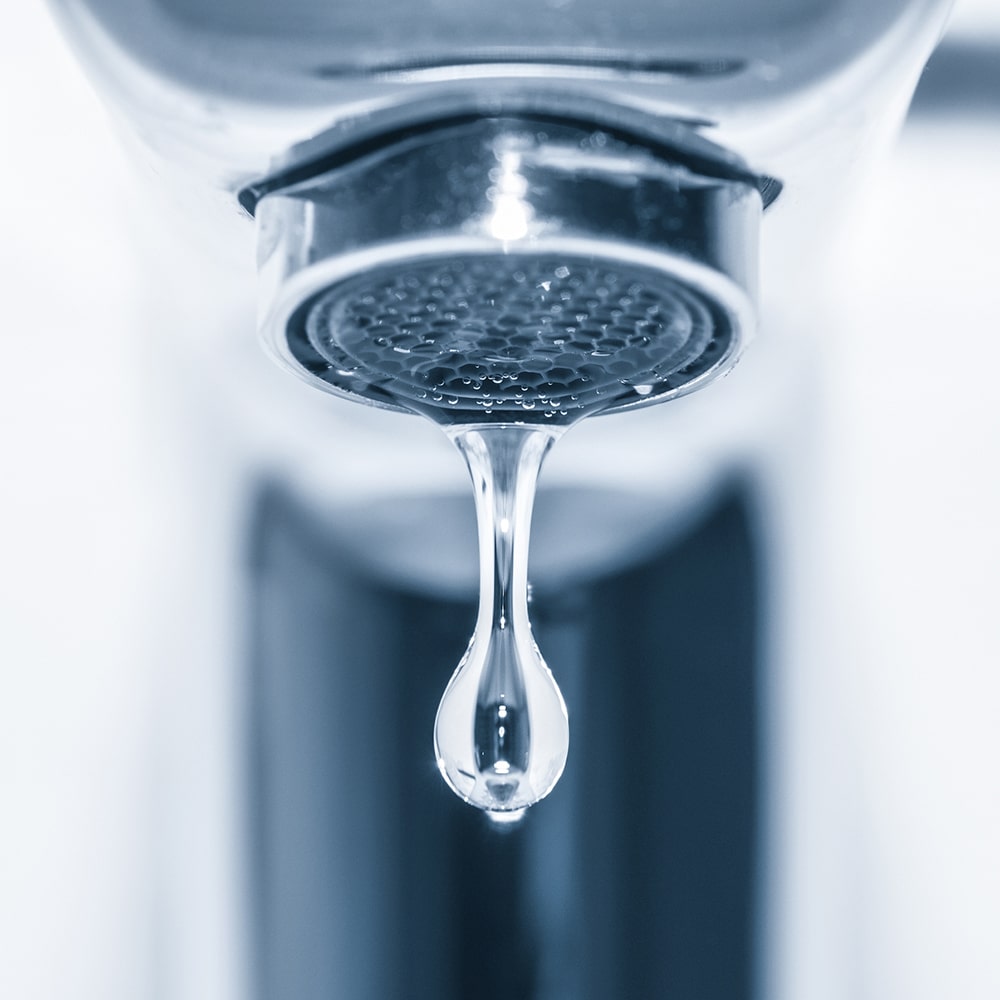
During extreme cold spells, allowing faucets to drip slightly can prevent pressure build-up that leads to burst pipes. This simple yet effective measure helps maintain a steady flow of water through your plumbing system, reducing the likelihood of freezing. When water solidifies into ice, it expands and increases pressure within the pipes, potentially causing them to crack or burst. By keeping even a small trickle of water moving, you alleviate this pressure and help safeguard your plumbing. This precaution is especially crucial in regions like Cherokee County, GA, where winter temperatures can fluctuate and catch homeowners off guard. Implementing such preventive strategies not only protects your home from costly repairs but also ensures uninterrupted access to water during the harshest months of the year.
- Which Faucets?: Focus on faucets connected to exposed pipes—those running along exterior walls or located in unheated areas.
- Steady Drip: Letting just a small trickle flow will keep water moving through the system, reducing the likelihood of freezing.
Step 4: Locate Shut-Off Valves
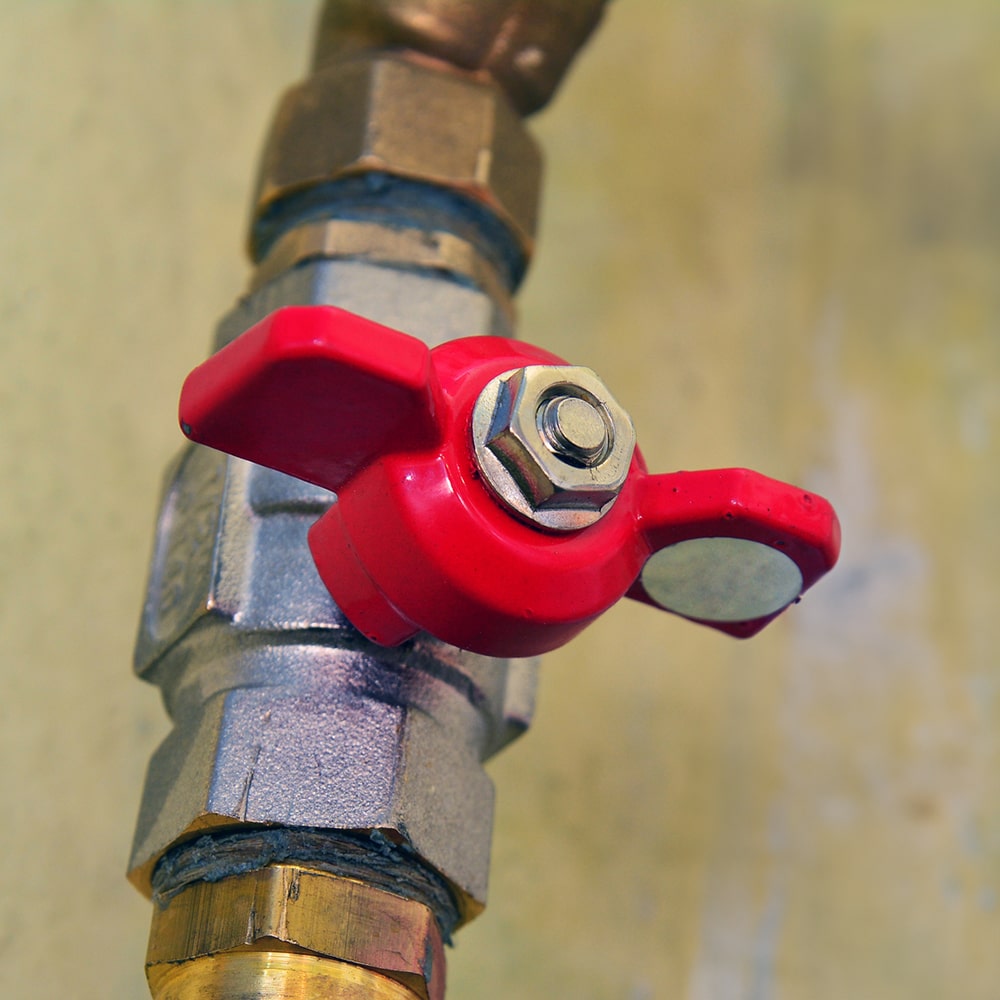
Understanding the location of your shut-off valves is crucial for every homeowner, especially during the winter months when the risk of pipes freezing and bursting is significantly heightened. These valves serve as your first line of defense against water damage, allowing you to quickly stop the flow of water in an emergency situation. By familiarizing yourself with their location, typically found where the main water line enters your home such as in a basement or utility room, you can act swiftly to prevent extensive damage if a pipe were to burst. This knowledge is particularly important in areas prone to harsh winter conditions, like Cherokee County, GA, where sudden temperature drops can create unforeseen plumbing challenges. Being prepared with this simple yet effective step can save you time, money, and a great deal of stress during the coldest months of the year.
- Find Main Valve: Typically located where the main water line enters your home, often in a basement or utility room.
- Test Functionality: Ensure that valves are functional and easy to access in an emergency situation.
Tips for Homeowners Uncomfortable with DIY Work
Some homeowners may prefer professional assistance when winterizing their plumbing systems, ensuring that all aspects are addressed efficiently and effectively. Here are some key steps you can take with the help of a professional:
Hire a Professional Plumber
- Expertise and Experience: If you’re not comfortable handling these tasks yourself, hiring an experienced plumber, such as those at Plumb N Plumber, can provide peace of mind. Our expert plumbers can help ensure your home is thoroughly inspected and properly winterized.
- Customized Solutions: Professionals can offer tailored solutions specifically designed for your home’s unique plumbing setup. This customization can be critical in addressing any specific vulnerabilities that could lead to problems during the colder months.
- Advanced Equipment: Utilizing advanced tools and technology, professional plumbers can identify potential issues that might not be visible to the untrained eye. This proactive approach helps in mitigating risks before they develop into major concerns.
Regular Maintenance Checks
- Scheduled Inspections: Consider scheduling regular maintenance checks with professionals who understand the unique challenges of Cherokee County’s winter climate. These inspections can preemptively address issues like small leaks or insulation weaknesses before they become significant problems.
- Documentation of System Health: Professionals usually provide detailed reports on the state of your plumbing system after each visit. This documentation is invaluable for keeping track of maintenance history and planning future inspections.
- Continuous Support: Establishing a relationship with a trusted plumber means you have access to ongoing support throughout the winter season. Quick responses to any emergencies or last-minute questions can significantly reduce stress in urgent situations.
Adopting these measures helps protect your plumbing system against winter’s harsh conditions. By focusing on these steps, residents can enjoy a more secure and worry-free season knowing their homes are well-prepared for whatever Mother Nature has in store.
The Consequences of Neglecting Pipe Preparation During Winter Months
Winter in Cherokee County, GA, brings challenges that can severely impact your home’s plumbing system. Preparing Your Pipes for Winter ahead is not just a matter of convenience but a necessity to prevent severe damage and costly repairs.
Importance of Preventing Frozen Pipes
Frozen pipes are more than an inconvenience; they are a serious threat to your home’s infrastructure. When water freezes inside pipes, it expands, increasing the risk of bursting. This can lead to:
- Costly Repairs: Repairing or replacing burst pipes can be expensive, often involving extensive labor and materials. You might need to explore professional pipe repair services for effective solutions.
- Water Damage: A burst pipe can quickly flood areas of your home, damaging walls, floors, and personal belongings. The cleanup and restoration process is time-consuming and costly.
Risks of Unprepared Plumbing Systems
Unprepared plumbing systems are vulnerable to the harsh winter conditions typical of Cherokee County. Burst pipes aren’t just a hypothetical risk—they are a common reality during winter months for those who neglect proper preparation.
Burst Pipes
Unprepared plumbing systems are vulnerable to the harsh winter conditions typical of Cherokee County. Burst pipes aren’t just a hypothetical risk—they are a common reality during winter months for those who neglect proper preparation.
In Cherokee County, the risk of burst pipes is significantly heightened during the winter months due to freezing temperatures. When water inside the pipes freezes, it expands, which can cause pipes to fracture or burst. This scenario is not just a potential hazard but a frequent issue for homeowners who have not adequately prepared their plumbing systems for the cold.
Costly Repairs
Dealing with burst pipes can lead to substantial repair costs. The process often requires addressing extensive damage and possibly replacing entire sections of piping. To ensure effective and timely solutions, it’s advisable to seek professional assistance.
Water Damage
A burst pipe can quickly lead to flooding in your home, causing significant damage to walls, floors, and personal belongings. The cleanup and restoration are both time-consuming and expensive. It’s crucial to act swiftly to minimize damage and restore normalcy.
To mitigate these risks, consider enlisting professional help from reliable services like Plumb N Plumber. We offer comprehensive pipe repair services that cater specifically to winter-related plumbing issues. You can learn more about our services by visiting Plumb N Plumber Pipe Repair. Our expertise ensures that your home’s plumbing system can withstand the challenges of winter, keeping your household running smoothly even in the harshest conditions.
Daily Life Disruptions
A burst pipe doesn’t just create a mess; it disrupts your daily routine by cutting off access to essential services like clean water for drinking, cooking, bathing, and sanitation.
This can be particularly challenging during the winter months when the temperature drops, making it difficult to go without these essential services for an extended period. Additionally, the time and effort required to address the issue can result in significant disruptions to your daily life.
Unexpected Expenses
Beyond immediate repair costs, you could face additional expenses from increased water bills due to leaks or losses from damaged property needing replacement.
It’s important to note that insurance may not cover all these expenses, especially if the damage is a result of negligence or lack of proper maintenance. Therefore, it’s crucial to invest in proactive measures to prevent burst pipes and ensure your plumbing system is prepared for winter.
Regular maintenance and insulation can go a long way in safeguarding your plumbing system against freezing temperatures. Some simple steps include insulating exposed pipes, disconnecting outdoor hoses, and keeping the thermostat at a consistent temperature day and night. These preventive measures may require some initial investment, but they can save you from the inconvenience, expenses, and potential property damage caused by burst pipes.
Water Supply Interruptions
When pipes freeze and burst, they don’t just release water into unwanted areas—they also interrupt your home’s entire water supply. This means:
- No Access to Running Water: Routine tasks such as showering or washing dishes become impossible.
- Potential Health Hazards: Lack of running water can lead to hygiene issues that could pose health risks for your family.
How Freezing Temperatures Damage Pipes
Understanding how freezing temperatures affect your pipes highlights why timely preparation is essential:
- Expansion Pressure: As water freezes and expands within pipes, it creates pressure that can cause the pipe walls to crack or split.
- Material Vulnerabilities: Different pipe materials react differently to cold. For instance, copper and plastic pipes may have varying tolerances but are both susceptible to damage if not properly insulated.
“An ounce of prevention is worth a pound of cure,” especially true when it comes to safeguarding your plumbing against winter’s wrath.
Proactive steps taken in advance allow you peace of mind knowing that your home is protected against the unpredictable nature of Georgia’s colder months. Preparing now means avoiding the stress and financial burden associated with emergency repairs later on.
Additional Precautions to Take Beyond Pipe Preparation
Winterizing your plumbing system involves more than just insulating pipes. Taking extra precautions can protect your home from unexpected plumbing issues during the colder months. Here, we’ll explore how to monitor your plumbing system effectively and the importance of staying informed about local weather conditions.
Monitoring Your Plumbing System for Signs of Trouble
It’s essential to keep an eye on your plumbing throughout the winter months. Recognizing early signs of frozen pipes or other issues can prevent them from escalating into major problems. Here’s what you should look for:
- Reduced Water Flow: If you notice a decrease in water pressure, it could indicate that a pipe is starting to freeze.
- Visible Frost on Pipes: Keep an eye out for frost accumulation on exposed pipes, especially in unheated areas like basements and crawl spaces.
- Unusual Noises: Listen for any strange sounds coming from your pipes, such as banging or gurgling, which may suggest trapped air or ice blockages.
- Cold Spots: Feel along the walls and floors where pipes run. Cold spots might signal that the insulation is inadequate or a pipe is freezing.
Should you detect any of these signs, it’s crucial to act swiftly by contacting a professional plumber to assess and resolve the issue before it becomes severe.
For more detailed advice on how to prevent and fix frozen pipes, consider reviewing this winter plumbing guide which provides comprehensive insights.
Staying Updated with Local Weather Forecasts
Identify Cold Snaps
Being proactive about monitoring local weather forecasts is equally important. Understanding upcoming weather patterns allows you to take necessary actions ahead of time. Keep track of forecasted temperature drops below 32°F, which are critical indicators of potential freezing conditions for your pipes.
By staying updated with the local weather forecasts, you can identify cold snaps and take the necessary precautions to prevent frozen pipes. Taking these steps can save you from costly repairs and inconvenience during the winter months. Remember, prevention is key when it comes to dealing with frozen pipes.
Prepare for Extended Freezes
When longer periods of cold weather are predicted, ensure that all precautionary measures are in place—such as leaving taps slightly open to allow water movement and thereby reduce pressure build-up in the pipes.
Consider insulating exposed pipes in unheated areas of your home, such as the basement or attic. This insulation can help maintain a consistent temperature and prevent freezing. Be sure to seal any gaps or cracks in your home’s foundation or walls to prevent cold air from entering and affecting your pipes.
If you are planning to be away from home for an extended period during the winter months, it is advisable to set your thermostat no lower than 55°F to keep the interior temperature above freezing.
By following these preventive measures and staying vigilant with weather forecasts, you can protect your pipes from freezing and avoid potential damage and costly repairs.
Respond Promptly
If a sudden cold snap is anticipated, double-check that all necessary steps have been taken to protect your plumbing system, including sealing drafts and insulating vulnerable areas.
By responding promptly and preparing for extended freezes, you can minimize the risk of frozen pipes and avoid potential damage. Remember, prevention is key when it comes to dealing with frozen pipes during the winter months.
Subscribing to local weather updates via apps or alerts can provide timely information on approaching cold fronts, allowing you to prepare adequately.
Importance of Ongoing Vigilance
While initial preparations are vital, maintaining vigilance throughout winter ensures any emerging issues are caught early. Regularly inspect areas prone to freezing and make adjustments as needed based on current weather conditions.
By integrating these additional precautions into your winter routine, you’ll safeguard not only your plumbing but also enhance the overall safety and comfort of your home during harsh weather conditions. Engaging with professionals like Plumb N Plumber when uncertain about any issues ensures expert guidance and peace of mind throughout the season.
The Role of HVAC Maintenance in Winter Plumbing Preparations
Ensuring the reliability of your HVAC system during winter months is as crucial as preparing your plumbing. A well-maintained heating system not only provides comfort but also plays a vital role in protecting your pipes from freezing. In Cherokee County, GA, where winter temperatures can dip significantly, understanding the when, how, and why of HVAC maintenance becomes essential.
Why Maintain Both Heating and Plumbing Systems?
- Prevent Pipe Freezing: Properly functioning heating systems maintain indoor temperatures, reducing the risk of pipe freezing. Frozen pipes can lead to bursts and significant water damage, making it essential to keep your home warm.
- Energy Efficiency: A well-maintained HVAC system operates more efficiently, saving on energy costs and ensuring consistent heating throughout your home. This efficiency helps in maintaining a stable environment for your plumbing system.
- Extend System Lifespan: Regular maintenance prevents minor issues from developing into major problems, extending the lifespan of both your heating and plumbing systems. This proactive approach minimizes the need for costly emergency repairs.
Recommended Best Practices for HVAC System Maintenance
Keeping your HVAC system in top shape involves attentive care and routine checks. Here are some best practices to consider:
Regular Inspections
Conducting regular inspections of your HVAC system is vital to ensure its proper functioning. Hiring a professional technician for an annual inspection can help identify any potential issues before they become major problems. During these inspections, technicians will check all components of your system to ensure they are operating efficiently. It’s also important to regularly check your thermostats for accuracy and replace the batteries if needed to maintain consistent indoor temperatures.
Clean and Replace Filters
Maintaining clean air filters is essential for optimal HVAC performance. Filters should be cleaned or replaced every one to three months, depending on usage and environmental factors. Dirty or clogged filters restrict airflow, forcing the system to work harder, which can increase energy costs and lead to premature wear and tear on the equipment. Keeping filters clean ensures efficient operation and prolongs the life of your system.
Regular Maintenance of Coils and Fins
Cleaning the coils and fins of your HVAC system is another crucial step in its maintenance. Over time, these components can accumulate dust, dirt, and debris, hindering proper heat transfer. Regularly inspecting and cleaning them helps maintain efficient operation and prevents potential issues such as reduced cooling or heating capacity.
Monitor Refrigerant Levels
Maintaining proper refrigerant levels is vital for the optimal functioning of your HVAC system. Low refrigerant levels can lead to decreased cooling efficiency and potential damage to the compressor. Regularly check refrigerant levels and promptly address any leaks or inconsistencies to ensure your system operates smoothly.
Clear Surrounding Area
Ensure that the space around your outdoor unit is clear of debris, vegetation, or any obstructions. Proper airflow is essential for efficient operation, so maintaining a clean and unobstructed area around the unit helps prevent overheating and reduces strain on the system.
Consider Professional Maintenance Agreements
Engaging in a professional maintenance agreement can offer numerous benefits. These agreements typically include routine inspections, priority service, discounts on repairs, and overall peace of mind. Having a trusted technician regularly assess your HVAC system ensures its longevity and helps identify any potential issues early on.
By adopting these best practices and investing in regular HVAC maintenance, you can maximize the lifespan of your system, improve energy efficiency, reduce repair costs, and enjoy consistent comfort year-round.
Check Ductwork
The efficiency of your HVAC system can be significantly affected by the condition of your ductwork. It’s important to inspect ducts regularly for any leaks or blockages that could hinder performance. Sealing any leaks with appropriate duct sealing products can improve system efficiency and reduce energy waste, ensuring that heated or cooled air reaches all parts of your home effectively.
Inspecting and sealing ductwork is especially crucial if you have an older home, as leaks are more common in aging duct systems. Additionally, ensuring that vents and registers are unobstructed by furniture or other objects allows for proper airflow throughout your home. Taking these steps to maintain your HVAC system will not only improve its efficiency and performance but also help reduce energy consumption and lower your utility bills.
Test Safety Controls
Safety controls are crucial components of HVAC systems that help prevent overheating and other potential hazards. Regularly verifying that these controls are operational is necessary for maintaining a safe home environment. Additionally, homes with gas heating systems should have carbon monoxide detectors installed and tested frequently to ensure they are functioning properly, providing peace of mind against potential gas leaks.
Maintain Outdoor Units
Outdoor units require attention throughout the year to maintain their performance. Keeping these units free from debris such as leaves or snow is important, as obstructions can impede airflow and reduce efficiency. Regularly inspecting unit covers for any damage or misalignment is also necessary to protect the unit from external elements that could affect its operation.
It’s advisable to schedule professional maintenance for your outdoor units at least once a year. This will involve cleaning the coils, checking refrigerant levels, and ensuring that all components are in good working condition. Regular maintenance not only extends the lifespan of your unit but also helps it operate efficiently, saving you on energy costs in the long run.
Monitor System Performance
Being attentive to the performance of your HVAC system can help catch issues early. Unusual noises or odors often signal underlying problems that need immediate investigation. Additionally, monitoring energy bills for unexpected increases can indicate inefficiencies within the system, prompting further inspection or maintenance as needed.
Professional Tune-Ups
- Enlisting professionals for periodic tune-ups is recommended to address complex issues beyond basic homeowner maintenance capabilities. These experts can provide comprehensive evaluations and adjustments, ensuring your HVAC system runs smoothly and efficiently throughout its lifespan.
By integrating these practices into your seasonal home care routine, you contribute significantly toward safeguarding both your heating system and plumbing against harsh winter conditions typical of North Georgia areas like Cherokee County. Effective HVAC maintenance not only enhances indoor comfort but also acts as a frontline defense against plumbing-related winter mishaps.
A well-maintained HVAC system works hand-in-hand with proper plumbing preparations; together they form an integrated strategy ensuring your home remains safe, efficient, and comfortable throughout the cold months ahead.
Taking a Holistic Approach: Insulation Checks and Draft Elimination Tips
Keeping your home’s plumbing safe during the cold winters in Cherokee County requires more than just Preparing Your Pipes for Winter directly. It’s also important to check the insulation in your home and eliminate any drafts. These two measures play a crucial role in protecting your plumbing systems from freezing temperatures. Let’s take a closer look at how these actions contribute to making your home ready for winter.
Benefits of Good Insulation and Draft Sealing
Effective insulation and sealing off drafts not only shield your pipes but also improve your home’s overall energy efficiency. When your home is properly insulated, it can maintain a steady indoor temperature, reducing the chances of pipes freezing during extremely cold weather. This stability leads to lower energy consumption, resulting in reduced heating bills and a comfortable living space.
How Insulation Protects Your Plumbing:
- Heat Retention: Keeps warm air inside, ensuring that areas with plumbing lines remain above freezing temperatures.
- Barrier Against Cold Air: Prevents cold drafts from reaching vulnerable pipes situated near exterior walls or unheated zones like basements and attics.
- Moisture Control: Reduces condensation on pipes, minimizing the risk of rust and corrosion over time. Learn more about moisture control.
Steps to Enhance Home Insulation
Improving your home’s insulation doesn’t have to be an overwhelming task. Here are some practical steps homeowners can take:
- Inspect Existing Insulation:
- Check attic spaces, crawl spaces, and basements for adequate insulation.
- Look for signs of wear or thinning in existing insulation materials.
- Upgrade Where Needed:
- Consider adding insulation to exterior walls if they feel significantly cold.
- Use foam pipe covers for additional protection around exposed plumbing.
- Seal Windows and Doors:
- Apply weatherstripping around windows and doors to block drafts.
- Use caulk to seal any gaps or cracks around door frames and window sills.
- Install Insulated Curtains or Blinds:
- Heavy curtains or thermal blinds can provide an extra layer of defense against cold drafts entering through windows.
- Check for Hidden Draft Sources:
- Inspect electrical outlets, light switches, and other openings on exterior walls for drafts.
- Use outlet gaskets or foam inserts to prevent heat loss.
Air sealing your home is another effective way to enhance energy efficiency while protecting plumbing.
Practical Draft Elimination Tips
Addressing drafts is crucial in maintaining a warm home environment during winter months. Here are some actionable tips:
- Door Sweeps: Install door sweeps at the bottom of doors leading outside to stop drafts from entering.
- Air Duct Maintenance: Ensure all air ducts are properly sealed and insulated to maximize heating efficiency throughout the home.
- Fireplace Damper: Keep the fireplace damper closed when not in use to prevent heat loss up the chimney.
Implementing these solutions will not only protect your plumbing but also yield long-term benefits for your home’s energy efficiency. By taking a comprehensive approach that includes both insulation checks and draft elimination, you create a resilient barrier against winter’s chill. This attention to detail ensures that your plumbing remains safe, reducing the risk of unexpected complications as temperatures drop
Why Choose Plumb N Plumber for Your Winter Plumbing Needs?
Winter in Cherokee County, GA can bring its fair share of challenges, particularly when it comes to plumbing. Whether you’re dealing with frozen pipes or simply preparing your home for the cold months ahead, Plumb N Plumber is your go-to partner for all plumbing services in Cherokee County and the greater North Georgia area.
Comprehensive Plumbing Services
At Plumb N Plumber, we understand the unique winter climate of Cherokee County and its impact on your plumbing systems. Our team offers a wide range of services to ensure your home is winter-ready:
- General Plumbing: From minor leaks to major installations, we provide expert solutions tailored to your needs.
- Emergency Plumbing Services: Winter-related issues like frozen pipes can happen unexpectedly. Our emergency services are designed to handle such situations swiftly and efficiently.
- Pipe Repair and Insulation: Protect your home from potential pipe bursts with our thorough inspection and insulation services.
- Water Heater Installation & Repair: Ensure you have hot water during the chilly months with our prompt water heater services.
- Slab Leak Detection & Repair: Prevent costly water damage with our state-of-the-art leak detection technology.
Our skilled team, led by Master Plumber Matthew LoPiccolo (MP210628), is well-equipped to handle any plumbing challenge that winter may throw your way.
Why Prepare Your Home’s Water Pipes?
Preparing your home’s water pipes for cold winter weather is essential. Here’s why:
- Prevent Costly Damage: Frozen pipes can burst, leading to expensive repairs and extensive water damage.
- Avoid Disruptions: Unprepared plumbing systems can result in interruptions to your water supply, affecting daily life.
- Peace of Mind: Knowing your home is prepared helps you enjoy the winter season without worry.
How and When to Prepare
Starting preparations early is crucial. Monitor local weather forecasts around mid-November for first freeze indicators (temperatures dropping below 32°F). Conduct a thorough inspection of your plumbing system during late fall maintenance to identify vulnerable areas needing extra protection against freezing.
Contact Us Today
Ready to safeguard your home against winter’s chill? Reach out to us today!
- Phone: Call us at (678) 725-0042 for immediate assistance.
- Email: Send inquiries to info@plumbnplumber.com
We operate Monday through Friday from 8:00 AM – 7:00 PM, ensuring we’re available when you need us most.
Taking action now can save you time, money, and stress as temperatures drop. With our transparent pricing and commitment to quality workmanship, you can trust Plumb N Plumber as your reliable choice for winter plumbing needs in Cherokee County and beyond.
Plumb N Plumber stands ready to provide expert solutions that keep your plumbing safe and functional throughout the winter months. Whether it’s routine maintenance or emergency repairs, let us help you enjoy a worry-free season by preparing your home’s plumbing system effectively.
FAQs (Frequently Asked Questions)
When should I start preparing my water pipes for winter in Cherokee County, GA?
It’s recommended to begin preparing your water pipes for winter in late fall, ideally by mid-November. This timing allows you to avoid the rush and ensure proper insulation before the first freeze occurs.
What are some effective steps to winterize my water pipes?
To effectively winterize your water pipes, inspect and insulate exposed pipes in unheated areas, seal any drafts around windows and doors, and allow faucets to drip slightly during extreme cold spells. Detailed instructions on these steps can help prevent freezing.
What are the consequences of neglecting pipe preparation during winter months?
Neglecting pipe preparation can lead to frozen pipes, which may burst and cause significant water damage to your home. This can result in costly repairs, disruptions to your daily life, and potential water supply interruptions.
How can I monitor my plumbing system for signs of frozen pipes?
During winter months, keep an eye on your plumbing system for signs of trouble such as unusual noises or reduced water flow. It’s also important to stay updated with local weather forecasts so you can take action if a cold snap is forecasted.
Why is HVAC maintenance important for winter plumbing preparations?
Maintaining your HVAC system is crucial during colder months as it helps ensure that your home stays warm. A well-functioning heating system can prevent freezing temperatures from affecting your plumbing, reducing the risk of frozen pipes.
What services does Plumb N Plumber offer for winter plumbing needs?
Plumb N Plumber provides a range of services including general plumbing and emergency repairs specifically related to winter issues like frozen pipes. If you need assistance with winter preparations, contact us for immediate help.
